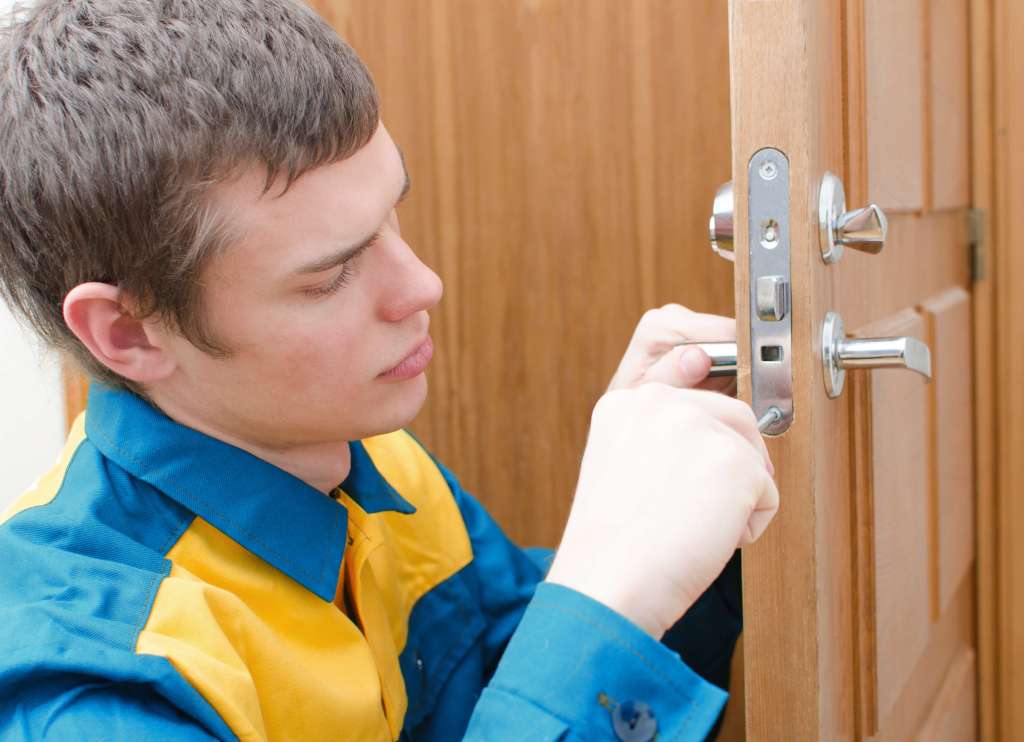As a landlord, there are times you’re going to want to access your property, whether it’s for routine inspections or to carry out maintenance.
Our guide to landlord access rights will help you make sure you stay within the law and maintain a good relationship with your tenants.
What is a landlord’s right of entry?
Under UK law, tenant rights allow them to enjoy “the covenant for quiet enjoyment”, which means they’re entitled to live in a property without interference from their landlord, letting agent, or anyone acting on their behalf.
Tenants’ right to live in your property peacefully and undisturbed can only be overruled by a court order.
However, there’ll be times when you’ll need to access the property, and those times are covered under the following three landlord rights:
Right of reasonable access
The right of reasonable access allows landlords to enter properties to carry out repairs. However, what counts as ‘reasonable access’ varies.
In an emergency you can enter the property immediately, but in other circumstances like carrying out an annual gas safety check, you’ll need to give notice.
Emergencies are rare, but these are some examples of when landlords have the right to enter the property without giving notice:
- if there was a fire in the property
- if you or the tenants could smell gas
- if there was structural damage to the property that needed urgent attention, such as damage from a road accident
- if you suspected violent criminal activity was happening inside
Right to inspect
With inspections or other routine visits, such as carrying out electrical safety checks, you don’t have the right to enter the property immediately and must give your tenants notice of your plans to visit.
Right to enter to provide services
If you provide an ongoing service for your tenants, such as room cleaning, and this is specified in your tenancy agreement or another legal agreement that your tenants have signed, then you can access the property without notice to complete these tasks.
How much notice does a landlord have to give to enter a property?
Legally, you’ll need to give your tenants at least 24 hours’ notice before you visit the property. However, many landlords choose to give more notice, where possible.
This gives your tenants plenty of time to arrange to be in, and can make your working relationship easier. It also gives tenants the opportunity to tidy up and think about any questions or issues they want to discuss.
You should also inform your tenant of the time you intend to visit when you give them notice. If you let them know last thing on a Thursday and then show up first thing on a Friday, it won’t have been 24 hours.
How should I give notice to my tenants?
You can organise the visit in person or over the phone, but you’ll need to follow this up with notice in writing.
It doesn’t have to be a letter – a text message or email is fine and also gives you the benefit of a digital paper trail.
When giving notice, make sure you explain who is going to be visiting, when they’ll be visiting, and the reason for the visit. If any of these details change beforehand, remember to inform your tenants.
Can I visit my property at any time?
A standard tenancy agreement will say that you can only arrange a visit at ‘reasonable’ times of day.
This won’t apply if there’s an emergency in the middle of the night, but for arranged visits you should aim for a reasonable time on a weekday.
How often can a landlord inspect a property?
There’s no limit on how frequently you can visit your rental property. However, you must remember the tenant’s right to ‘quiet enjoyment’.
If tenants feel you’re visiting too often, at times which aren’t convenient, or for no reason, this could have a negative impact on your relationship. Unhappy tenants are less likely to stay for the long-term and may not look after the property as their own.
Most landlords will carry out inspections at least once a year, and often once every six months. You’ll also need to visit when maintenance work is needed and when jobs like the inventory check-in need completing.
Can I enter the property when the tenant isn’t there?
You can, as long as the tenant has given you permission. However, you must make sure that it’s at the time you said, by the person you said, and for the reason you said.
Depending on what needs doing, it could be beneficial for the tenants to be there, or for the property to be empty.
For example, if you’re showing prospective tenants around the property, it may be easier for all parties if the current tenants are out. However, if you need to discuss a maintenance issue, then it makes sense to visit when the tenants are home.
Can I take other people into the property?
Yes, if you need to bring someone else into the property, you’re allowed to bring them with you, or give them access to visit on their own, so long as you let your tenant know.
People you may need to let into the property include:
- letting agents
- professionals carrying out agreed repairs or improvements on your behalf
- new prospective tenants if your current tenant is moving out
If you or your letting agent want to show new prospective tenants around your property, the same rules apply. However, you’re only entitled to do so in the last 28 days of your current tenant’s tenancy.
What if a letting agent manages my property?
If you have a letting agent who manages your property and does regular inspections on your behalf, then the same access rules apply.
If you divide the management duties, it’s best to make sure that someone has informed the tenant in advance and that a record is kept.
The dos and don’ts of requesting access
-
do give as much notice and information as possible
-
do try and negotiate if a tenant refuses access
-
do establish a paper trail to make sure you’re covered
-
don’t organise unnecessary visits
-
don’t enter the property without the tenant’s permission
-
don’t forget your rights of entry in an emergency
Can my tenant refuse me access to the property?
Yes, your tenant is within their rights to refuse you access to the property. In a lot of cases, tenants will refuse access because the date and time isn’t convenient for them. In most cases, they’ll suggest an alternative date or ask you to rearrange.
However, some tenants will persistently try to obstruct you from entering the property. If that happens, there are steps you can take to resolve the issue.
Tenants refusing access could be for a number of reasons, including:
- your relationship with them has broken down
- they’ve caused serious damage to the property and don’t want you to know about it
- they’re illegally subletting the property
- they’re using the property for criminal activity, such as growing cannabis
What can I do if tenants are refusing access for repairs?
First, contact the tenant and inform them that they’ll be liable for any deterioration of the property due to your inability to carry out repairs. It’s best to do this in writing so there’s proof of your correspondence.
It’s also worth mentioning that you won’t be liable if they or their property suffer injury or damage because of a fault in the property that you weren’t able to remedy.
Depending on how serious the situation is, you may want to apply for a court order to be allowed to enter, or serve your tenant with notice to end the tenancy. Read more about how to evict a tenant.
How legal expenses insurance can help
If you have legal expenses insurance as part of your Simply Business policy, you have access to a number of useful services through DAS Businesslaw (you’ll just need your voucher code found in your policy documents to register).
DAS has a legal advice helpline, available whether you’re facing a serious legal issue or just want to check something with an adviser. They also offer a range of legal templates and guides to help you with managing tenancies.
Can my tenant change locks without permission?
As with refusing access, a tenant is within their rights to change the locks of a property – and they’re not obliged to give you a key.
For the most part, tenants won’t change the locks, but those who do often cite their landlord entering the property without permission as the reason for doing so.

Maintaining a good relationship is the best way to avoid this happening. Even if a tenant does change the locks, they could still let you in when you need to visit. If not, following the steps outlined above should help resolve things.
This article is just a guideline and does not constitute legal advice. If you need to take legal action against your tenant please consult a solicitor.
More useful articles for landlords
- A guide on setting up a property company
- The ultimate guide to building a property portfolio in the UK
- How to work out rental yield and free rental yield calculator
- A landlords guide to sitting tenants
- What type of landlord insurance do I need?
Have you had access problems with tenants in the past? How did you deal with them? Let us know in the comments.
Get set with tailored landlord cover
Over 200,000 UK landlord policies, a 9/10 customer rating and claims handled by an award-winning team. Looking to switch or start a new policy? Run a quick landlord insurance quote today.
